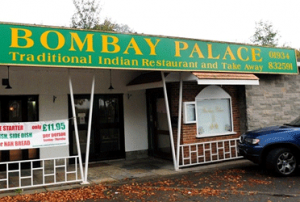The leaseholder of a restaurant has been sentenced after illegally removing asbestos from the building, putting people at risk of exposure.
Aman Ullah was in control of construction work, which included the removal of asbestos insulation board soffits from the premises, which was being refurbished. The asbestos insulation board was removed in an uncontrolled manner, with no controls to prevent the spread of asbestos fibres.
A Prohibition Notice was served, preventing any work near of the removal of the material, except by a licensed contractor. Mr Ullah failed to comply with the Prohibition Notice.
On Wednesday 29 April 2015, North Somerset Magistrates Court heard that HSE found that Mr Ullah failed to take suitable measures to prevent the spread of potentially deadly asbestos fibres, as the asbestos was removed in an uncontrolled manner and then left at the side of the building. In an area which members of the public had access.
The court was told the nature of the work meant that the asbestos should have been removed by a licensed asbestos removal contractor.
Aman Ullah, was fined a total of £10,000 and ordered to pay £5,000 in costs and a £500 victim surcharge after pleading guilty to two breaches of the Control of Asbestos Regulations 2012 and The Health and Safety at Work etc Act 1974.
Failure to Comply with Prohibition Notice under the Health and Safety at Work Act 1974 section 33(1) (g)
Failure to reduce to the lowest level reasonably practicable the spread of asbestos (Control of Asbestos Regs 2012 Reg 16)
Speaking after the case HSE inspector Kate Leftly said:
“Asbestos is the single greatest cause of work-related deaths in the UK, with some 4,500 deaths each year due to asbestos-related diseases, as well as many serious illnesses.
“For this reason, work with asbestos requires a high degree of regulatory control to ensure it is carried out safely. Mr Ullah decided to ignore the fact an asbestos licence was required to undertake this work and his actions not only put those working on site and members of the public at risk.”
Regulation 16 of the Control of Asbestos Regulations 2012 states: “Every employer must prevent or, where this is not reasonably practicable, reduce to the lowest level reasonably practicable the spread of asbestos from any place where work under the employer’s control is carried out.”
Section 33(1)(g) of the Health and Safety at Work etc Act 1974 states: “It is an offence for a person … to contravene any requirement or prohibition imposed by an improvement notice or a prohibition notice (including any such notice as modified on appeal).”

